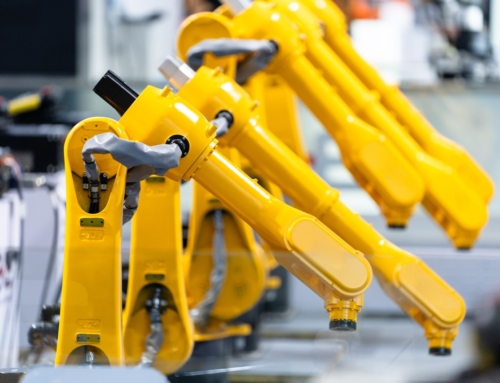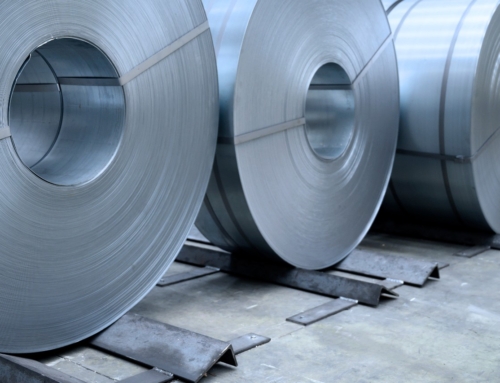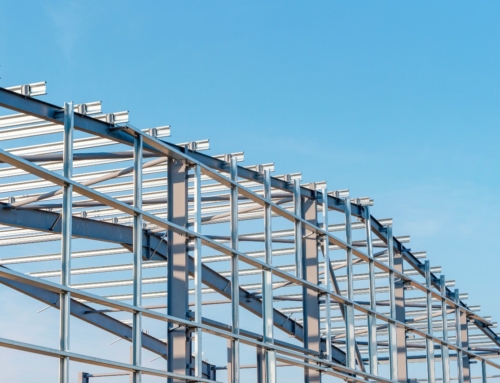Stainless steel: characteristics, properties and applications
Everything you need to know about stainless steel and its applications
Stainless steel is one of the most versatile and used materials in industrial fields. Thanks to its exceptional mechanical, chemical and aesthetic properties, it can ensure high strength, reliability and durability, and can be used in many sectors, ranging from mechanical engineering to construction, from the automotive sector to furniture, up to the realization of metal carpentry and industrial welded parts.
Its resistance to corrosion, high temperatures and weathering makes it particularly suitable for applications in harsh environmental conditions, such as marine or industrial environments. But stainless steel is not only durable, it is also aesthetically pleasing, so it is ideal for architectural and design applications that require materials with excellent surface finishes and aesthetic qualities.
In this article we will explore in detail all the characteristics, properties and applications of stainless steel, offering a complete overview of this material and its use in modern industrial production.
What is stainless steel?
 The term “stainless steel” indicates different types of steel resistant to corrosion and with a certain degree of purity. Like other steels, stainless steel is mainly composed of iron and carbon, but with the addition of a significant amount of chromium (more than 10%), in addition to other elements such as nickel, manganese and molybdenum. It is this particular chemical composition that gives stainless steel its distinctive characteristics. Chromium reacts with oxygen in the air to form a thin layer of oxide on the surface of the material. This protective layer of chromium oxide is what prevents corrosion from damaging stainless steel, making it resistant to weathering, corrosion and rust.
The term “stainless steel” indicates different types of steel resistant to corrosion and with a certain degree of purity. Like other steels, stainless steel is mainly composed of iron and carbon, but with the addition of a significant amount of chromium (more than 10%), in addition to other elements such as nickel, manganese and molybdenum. It is this particular chemical composition that gives stainless steel its distinctive characteristics. Chromium reacts with oxygen in the air to form a thin layer of oxide on the surface of the material. This protective layer of chromium oxide is what prevents corrosion from damaging stainless steel, making it resistant to weathering, corrosion and rust.
The main difference between steel and stainless steel is therefore the presence of chromium in the latter, which ensures a longer life and strength compared to ordinary steel. While steel can rust and corrode easily in the presence of moisture and weathering, stainless steel retains its structural integrity and corrosion resistance over time, even in aggressive environments. In addition, stainless steel is generally more expensive than traditional steel because of its more complex chemical composition and its particular properties.
Characteristics and properties of stainless steel
As we have seen, corrosion resistance is one of the most distinctive properties of stainless steel, but it is not the only one. This material is characterized by a series of unique mechanical properties and characteristics, which make it an extremely versatile and reliable material for multiple applications. Among its main properties we find:
- mechanical strength: it offers considerable mechanical strength, which refers to its ability to withstand loads and mechanical stresses without deformation or breaking. This property makes it suitable for applications that require robust and durable components, such as support structures, precision metalworks and mechanical components;
- resistance to high temperatures: stainless steel maintains its mechanical resistance even at high temperatures and is therefore particularly suitable for applications in high temperature environments such as those of the chemical and oil industry. This property makes it a reliable material even in the most extreme conditions;
- hardness: it can be heat treated to increase its hardness, a key feature for applications that require wear and abrasion resistant components, as cutting tools and machine components subject to intense mechanical stress;
- toughness: stainless steel is also known for its high toughness, which refers to its ability to absorb energy before breaking. This property makes it resistant to impacts and sudden stress, so it is suitable for applications that require greater impact resistance, such as vehicle components and safety equipment;
- ease of processing: it is easily machined through processes such as rolling, stamping and forging. This ease of processing allows the production of complex and detailed components with precision;
- easy cleaning and hygiene: stainless steel is easy to clean and is able to ensure compliance with high standards of cleanliness and hygiene required in specific sectors, such as food and medical. The smooth, non-porous surface of stainless steel prevents the accumulation of bacteria, making it a safe and hygienic material;
- aesthetic performance: in addition to its mechanical and chemical properties, stainless steel also ensures excellent aesthetic performance thanks to its shiny and reflective surface. For this reason it is widely used in the living industry and in architecture.
How many types of stainless steel are there?
There are different types of stainless steel and each one has specific characteristics, which make it suitable for particular applications. Among the various types of stainless steel there are five main groups:
- austenitic stainless steel: this type of steel is the most commonly used because it offers excellent corrosion and heat resistance. Moreover, thanks to its austenitic crystalline structure, it is easily machinable and weldable. It is often used in applications requiring good corrosion resistance, such as chemical storage tanks, industrial piping, medical equipment or kitchen utensils;
- ferritic stainless steel: unlike austenitic steel, ferritic steel is magnetic and has good corrosion resistance, but is less resistant to high temperatures. It is generally used for applications that require good cold workability, such as in the automotive and appliance industries;
- martensitic stainless steel: it is magnetic and has good mechanical strength. Thanks to its heat treatment, it also offers a higher hardness than other types of stainless steel. It is commonly used for making products that require a high hardness, such as knife blades, crankshafts and machine parts;
- duplex stainless steel: this type of stainless steel combines the characteristics of austenitic and ferritic types. It offers good resistance to corrosion and sulfide corrosion, along with greater mechanical strength than austenitic steel. It is widely used in offshore, oil and power generation applications;
- super duplex stainless steel: this variant of duplex steel offers even greater resistance to corrosion and sulfide corrosion, along with increased mechanical strength. It is particularly suitable for applications in highly corrosive environments such as offshore oil platforms and desalination plants.
The different types of stainless steel therefore offer a range of properties and characteristics that make them suitable for numerous industrial and commercial applications, allowing you to choose the material that best suits the specific needs of each project.
Main applications of stainless steel
 As we have seen, stainless steel is used in many industrial sectors and applications due to its exceptional strength and durability. In construction, for example, it is widely used for architectural elements such as facades, cladding, bridges and external structures due to its weather resistance and aesthetics. In the automotive sector it is used instead for the production of engine components, exhaust systems and chassis parts, ensuring strength and reliability even in conditions of high mechanical stress.
As we have seen, stainless steel is used in many industrial sectors and applications due to its exceptional strength and durability. In construction, for example, it is widely used for architectural elements such as facades, cladding, bridges and external structures due to its weather resistance and aesthetics. In the automotive sector it is used instead for the production of engine components, exhaust systems and chassis parts, ensuring strength and reliability even in conditions of high mechanical stress.
It is also often used for the manufacture of components for industrial vehicles, components for car transport vehicles and agricultural machinery.
In the oil and gas industry, stainless steel is used for the construction of pipes, valves and components of drilling machines, ensuring a high resistance to corrosion and pressure.
Thanks to its mechanical strength, in addition to these applications, stainless steel can also be used for the production of telehandlers components and aerial work platform equipment ensuring reliable and long-lasting performance.
Stainless steel components produced by Ferrero Industrial are designed and manufactured with the aim of ensuring high performance and versatility in a wide range of industrial applications. Characterized by superior quality and compliance with precise production standards, they are able to meet the specific needs of customers in different sectors, improving the efficiency of production processes, reducing costs and increasing overall productivity.
For more information on the products and services offered by Ferrero Industrial, contact us!








